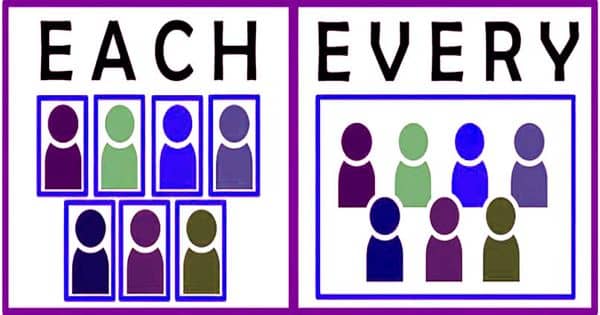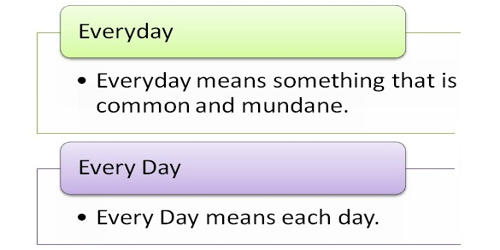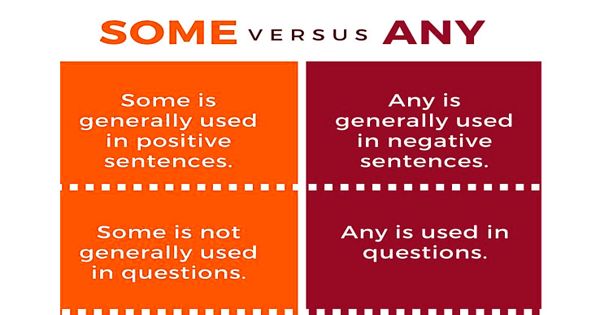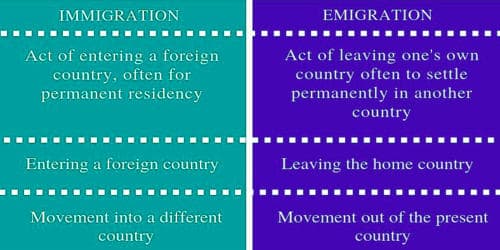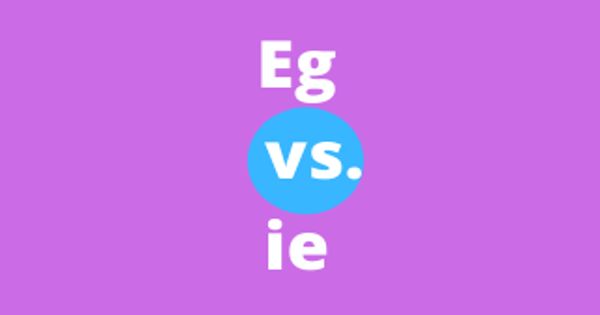‘Each and every’ is both used with singular nouns to indicate quantity. ‘Each and Every’ is the two quantifying determiners that can be used with singular nouns only. However, there are certain exceptions to this rule. ‘Each’ indicates two or more items, whereas ‘every’ indicates three or more items. Each is used for referring to every individual unit in a set of two or more. ‘Each’ is a way of seeing the members of a group as individuals.
On the contrary, we use every when we are talking pervasively, i.e. we are referring to all the items of the group collectively, which does not consist of an exception. ‘Every’ is a way of seeing a group as a series of members. Both ‘each and every’ are singular quantifiers. When they determine the subject of a sentence, they normally, therefore, require a verb in the singular. We use ‘each’ when the number of members in a group is two or more, whereas ‘every’ is used when there are three or more members in a group.
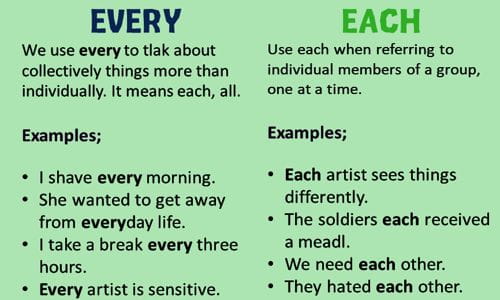
Difference between Each and Every
EACH
- When we refer to every item of a group, but individually, we use the word each.
- ‘Each’ refers to a plural number of people or items, but it considers each person or item as an individual or dissimilar unit, it does not consider the group collectively.
- ‘Each’ is used when we are referring to every member of a group, separately or one by one.
- Each is a determiner and a pronoun, which we use in our sentence to mention every person or thing in a group of two or more than that, considered and identified individually. It is usually followed by a singular verb.
- ‘Each’ is a determiner that implies a plural number of objects or persons. However, it considers every item of the group as an individual unit. Further, it can also act as a pronoun.
- Example: The exam syllabus is divided into 3 subjects and each subject has 5 units. Each flat of this building has a balcony.
EVERY
- When all the items of a group are taken collectively, without any kind of exception, we use every.
- ‘Every’ refers to multiple numbers of people or items, but it considers these people or items as part of a similar collective group.
- ‘Every’ is used when we are addressing all the items of the group, collectively.
- ‘Every’ is a determiner, which alludes to all the members of a group of three or more, without any exception. It is followed by a singular noun.
- ‘Every’ is a determiner, that implies a plural number of objects or persons, and lumps together as one.
- Example: In the factory, every worker has to wear a uniform. I like to read newspapers every morning.
